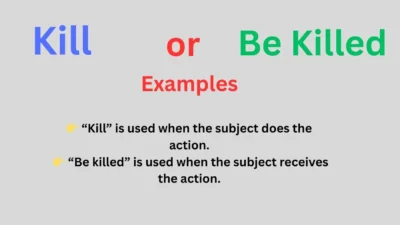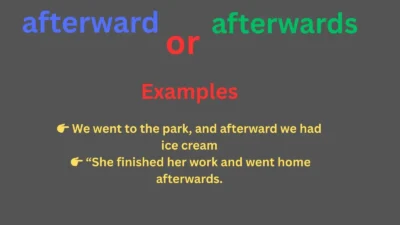I see you’re wondering whether it’s “better then” or “better than.” 😅
You’re not alone — this is one of the most common English mix-ups online. Both words sound similar, but they have very different meanings.
Using the wrong one can make your sentence sound confusing or even incorrect.
In this quick guide, I’ll explain the difference between then and than, show you when to use each, and help you never mix them up again.
Let’s make your grammar better than ever! ✍️
🧠 Better Then or Than – Quick Answer
✅ The correct phrase is “better than.”
Use than when you’re comparing two things:
- ✔️ She is better than her brother at math.
- ✔️ This phone is better than the old one.
❌ “Better then” is incorrect — unless you’re talking about time (and even then, the meaning changes):
- “We practiced a lot. Better then, we won.” (rare and awkward)
So remember: Use “than” for comparison, and “then” for time.
📜 The Origin of “Than” and “Then”
Both then and than come from Old English roots.
- Then came from þanne, meaning “at that time.”
- Than came from þonne, meaning “in comparison with.”
Over centuries, their meanings grew apart — but their similar spelling keeps confusing people even today.
In short:
- “Then” = time or sequence.
- “Than” = comparison.
🇬🇧 British English vs 🇺🇸 American English
Good news! The rule is the same in both British and American English. 🎉
There’s no regional difference here — writers everywhere use “better than.”
However, Americans use “then” more often in narrative writing or storytelling.
| Context | British English Example | American English Example |
|---|---|---|
| Comparison | This car is better than that one. | This car is better than that one. |
| Time | Let’s eat, then go. | Let’s grab food, then go. |
Both agree: “better than” is always correct. ✅
🌍 Which Spelling Should You Use?
If you’re writing for school, work, or online, always use “better than.”
Use “then” only when talking about time or sequence.
👉 First we studied, then we watched a movie.
For formal writing (essays, reports, professional emails), using “better then” is always a grammar mistake.
So no matter where you live — UK, US, Canada, or Australia — it’s always better than, never better then.
🚫 Common Mistakes with “Better Then or Than”
Here are a few errors people often make 👇
| ❌ Wrong | ✅ Correct |
|---|---|
| She is better then me. | She is better than me. |
| I like this better then that. | I like this better than that. |
| He’s stronger then you think. | He’s stronger than you think. |
| It’s easier then expected. | It’s easier than expected. |
💡 Tip: If you’re comparing — use than.
If you’re talking about sequence — use then.
💬 Better Then or Than in Everyday Examples
Here’s how native speakers use these words daily 👇
In emails:
- “Your design looks much better than the previous one.”
In social media posts:
- “Netflix is better than cable, no debate!” 📺
In conversations:
- “I’ll finish this, then call you.”
In formal writing:
- “Our new product performs better than last year’s model.”
Everywhere you look, “better than” is the right phrase.
📊 Better Then or Than – Google Trends & Usage Data
A quick look at Google Trends shows that “better than” is searched and used 10x more than “better then.”
In most English-speaking countries (US, UK, India, Canada, Australia), the correct form dominates.
| Keyword | Popularity | Correctness | Usage |
|---|---|---|---|
| better than | ⭐⭐⭐⭐⭐ | ✅ Correct | Widely used |
| better then | ⭐ | ❌ Incorrect | Common mistake |
So the internet agrees — “better than” wins! 🏆
📘 Comparison Table
| Word | Meaning | Used For | Example |
|---|---|---|---|
| Than | Comparison | Comparing two things | She runs faster than me. |
| Then | Time/sequence | What happens next | We ate, then went home. |
FAQs
1. Which is correct — better then or better than?
The correct form is better than.
2. Why do people say “better then”?
Because the words sound similar, many confuse them — but “better then” changes the meaning completely.
3. Is “then” ever used after “better”?
Only in rare, time-based sentences (e.g., We trained hard, better then than never!). It’s uncommon.
4. How can I remember the difference?
Think: “then” = time, “than” = comparison.
5. Is “than” a conjunction or preposition?
It’s both — it connects two parts of a comparison.
6. Can I use “better then” in casual texts?
It’s still incorrect, even informally. Always write better than.
7. Is there any exception?
No — in every situation of comparison, use than.
🏁 Conclusion
In short, it’s better than, not better then.
Use “than” when comparing things, and “then” when talking about time.
It’s an easy fix that instantly makes your writing clearer, smarter, and more professional.
So next time you write, double-check your sentence. If it’s a comparison — choose than.
When it makes sense in time — use then.
That’s how your English becomes better than ever! ✅

Hi, I’m Ernest Hemingway, the author of GrammarNestly.com.
I’m a grammar expert and language enthusiast who loves making English simple and practical.
When I’m not writing about grammar, I enjoy reading, exploring new writing styles, and helping others improve their communication skills.



